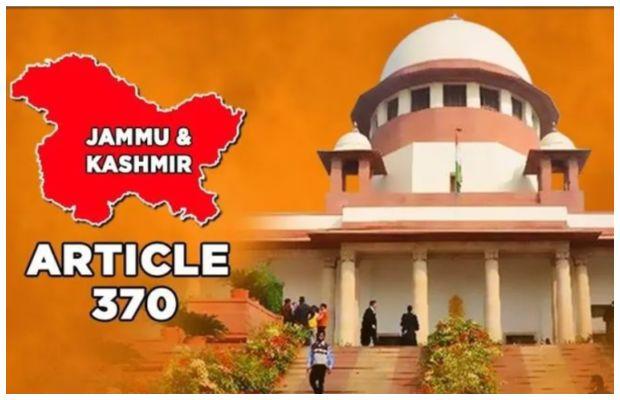Article 370: India’s Supreme Court upholds end of special status for held Kashmir
Article 370 gave Jammu and Kashmir its own Constitution and decision-making rights for all matters barring defence, communications and foreign affairs.

The Supreme Court of India ruled in a unanimous verdict on Monday that the special status of held Kashmir was a temporary provision and upheld the order abrogating Article 370 in the constitution.
The court also directed to hold elections in the held Kashmir by September 30, 2024.
A five-judge bench led by Chief Justice of India (CJI) Dhananjaya Yeshwant Chandrachud heard a batch of petitions challenging the abrogation of Article 370 of the Constitution for 16 days and reserved its verdict on September 5.
The reserved verdict was announced today and held that the occupied territory became an integral part of India “which is evident from Article 1 and 370 of the constitution”.
Article 370 was a temporary provision to ease Jammu and Kashmir’s merger with India, said Chief Justice of India DY Chandrachud, reading out a majority Supreme Court judgment.
The Supreme Court said Jammu and Kashmir should be put on par with other states “at the earliest and as soon as possible”, and called for state elections by September 30, 2024.
Jammu and Kashmir did not retain sovereignty when it joined India and its constituent assembly ceased to exist the moment it merged with India, the Supreme Court said, explaining the decision.
“The J&K constituent assembly was not intended to be a permanent body. It was formed only to frame the Constitution. The recommendation of the Constituent Assembly was not binding on the President,” said Chief Justice Chandrachud.
India’s top court, however, explained why the state continued to enjoy special status even after its merger with India, despite the state not having “internal sovereignty”.
“When the constituent assembly ceased to exist, the special condition for which Article 370 was introduced also ceased to exist. But the situation in the state remained, and thus the Article continued,” the court said.
“All states in the country have legislative and executive power, albeit to differing degrees. Articles 371A to 371J are examples of special arrangements for different states. This is an example of asymmetric federalism… Jammu and Kashmir do not have internal sovereignty different from other states,” the verdict added.
As reported by NDTV, the bench gave three separate judgments – one authored by Chief Justice Chandrachud on behalf of himself, Justice BR Gavai and Justice Surya Kant; another concurring judgment by Justice Sanjay Kishan Kaul, and a third judgment concurring with the other two by Justice Sanjiv Khanna.
Article 370 gave Jammu and Kashmir its own Constitution and decision-making rights for all matters barring defence, communications and foreign affairs.
Its removal in 2019, India’s ruling Bharatiya Janata Party (BJP) ended the special status of the state.






